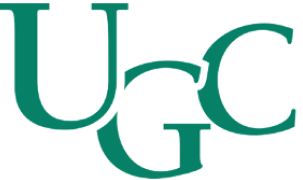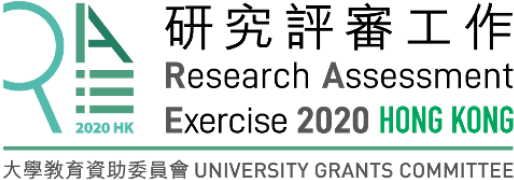Unit of Assessment:
Research categories:
?Engineering
Information Science & Library Science (1)
Social Sciences, General
Area Studies (1)
Impact locations:
?Asia
Hong Kong, China (8), Taiwan, China (2), China (Mainland China) (1)
Europe
Germany (1)
North America
United States (3), Canada (1)
Case Study
Public opinion counts: Consolidating bases for public deliberation of controversial issues in Hong Kong
1. Summary of the impact
This case study summarizes the impact of research related to media and public opinion in Hong Kong. The key findings have been widely disseminated and are repeatedly referred to in public discourse and reports by non-governmental organizations and government agencies, both locally and internationally. The research has improved quality of public deliberations and informed institutional decision-making. The research also entered the legal arena as the principal researcher served as an expert witness in a court case on the 2014 occupation movement. It set a precedent for courts to consider opinion surveys.
2. Underpinning research
The research has deepened understanding of how citizens perceive media and political developments, as well as attitudes towards controversial issues in Hong Kong.
The studies can be categorized into two branches. The first branch consists of onsite surveys conducted during major protests in Hong Kong since 2003, including the annual July 1 protests, the June 4 commemoration rallies, and the Umbrella Movement (UM) in 2014 [R1][R2][R6]. The second branch refers to population and representative surveys. The latter includes findings from a biennial survey on Hong Kong citizens’ perceptions of media freedom and political contestation carried out since 2008 [R3][R4], and a series of public opinion surveys since 2014 on political development in Hong Kong (i.e. “Hong Kong Public Opinion and Political Development” survey series) [R5]. In addition to survey data, some projects include in-depth interviews and media discourse analyses, to offer a more comprehensive picture of the political and societal situation. Most of these studies were directed by principal researcher, Professor Francis LEE (2008-present). Involved colleagues include Professor Clement SO (2008-present), Professor Joseph CHAN (2008-present), Professor Louis LEUNG (2009-2018), Professor Michael CHAN (2013-present) and Professor Paul LEE (2008-2016). These studies have generated a large number of research outputs (those listed in Section 3 are only a selection). Some of the materials in the three books listed in Section 3 are modified from peer-reviewed articles written by Professor Francis LEE and Professor Joseph CHAN [R1][R2][R6].
Onsite surveys of protest provide an overview of the background of participants, their attitudes and understanding of the protest event and related societal aspects. For example, the major public debates surrounding the annual June 4 commemoration and July 1 rallies hinge on the number of youth participants, their motives, and their perception towards local and central government. The research covers these important questions [R1][R2].
Since the handover in 1997, Hong Kong has been undergoing a lengthy process of political and social transition. Our population surveys, therefore, track people’s perception of the political system [R4][R6] and media freedom [R3].
The Umbrella Movement in late 2014 is one of the critical events in contemporary Hong Kong history. After the movement, the rise of localism has influenced the development of the local political system and the strategies of various political actors. Our research on the role of the media in the Umbrella Movement has helped public and private sector players, including local and international media, to understand the formation and characteristics of the movement and its aftermath [R5][R6]. Without losing sight of theoretical interests, our team follows the changing climate of society and provides empirical evidence to foster reasoned public deliberation on disputed issues.
3. References to the research
[R1] Lee, Francis L. F. & Chan, Joseph M. (2011). Media, social mobilization, and mass protests in post- colonial Hong Kong: The power of a critical event. New York: Routledge.
[R2] Lee, Francis L. F. & Chan, Joseph M. (2013). Generational transmission of collective memory about Tiananmen in Hong Kong: How young rally participants learn about and understand 4 June, Journal of Contemporary China, 22:84, 966-983. doi: 10.1080/10670564.2013.795311
[R3] Lee, Francis L. F. (2014). Talk radio, the mainstream press, and public opinion in Hong Kong. Hong Kong: Hong Kong University Press
[R4] Lee, Francis L. F. (2014). The impact of online user-generated satire on young people’s political attitudes: Testing the moderating role of knowledge and discussion, Telematics and Informatics, 31, 397-409. doi: 10.1016/j.tele.2013.08.002
[R5] Lee, Francis L.F. (ed.) (2016). Media, Mobilization and the Umbrella Movement. London: Routledge.
[R6] Lee, Francis L. F. & Chan, Joseph M. (2018). Media and Protest Logics in the Digital Era: The Umbrella Movement in Hong Kong. New York: Oxford University Press.
4. Details of the impact
The research has: 1) provided solid information and insights about public opinion that improved the quality of public deliberation, 2) informed institutional decision-making, and 3) informed decision-making in court and set a precedent for survey research to be considered in court in the future.
This impact comes largely from the results of survey studies that addressed some key issues in public debates in the Hong Kong society. These issues include how one can understand the extent of the rise of “localism” in Hong Kong [R6], the extent of pro-independence sentiment [R6], the views and characteristics of participants in various protests [R1][R2], citizens’ attitude towards protest [R5].
1. Regarding improvement of the quality of public deliberation, our findings were cited by both local and well-known international media. For example, The Guardian reported our survey result of citizen’s support towards occupation during the Umbrella Movement [Source f]. Other international media organizations that have reported our findings include those in, among others, the United States, Middle East, Germany, Canada, Taiwan, and India.
Apart from direct citation of survey results, some commentaries, such as the one discussing Hong Kong pro-independence movement written by Yi-Zheng LIAN in The New York Times [Source g], cited our research as evidence to support the arguments over controversial issues. In other words, the findings are not only “reported”; they have been repeatedly used by the media and various writers. As such, the findings have fully entered public discourse and become part of the way the world understands Hong Kong.
One high profile example is the use of our research findings by an online news outlet during a real-time fact-checking programme associated with the televised debates in the 2017 Hong Kong Chief Executive election [Source h]. This example directly shows how our findings are used to combat misleading claims made by politicians.
2. For institutional decision-making, the research findings were quoted in government official documents, NGO reports, and research reports issued by think tanks. These reports were issued at the local, national, and international levels. For examples, the key findings of several surveys about the Occupy movement and constitutional development were included in the HKSAR Government’s Report on the Recent Community and Political Situation in Hong Kong issued in 2015 [Source a], a report on the situation of Hong Kong by Mainland Affairs Council of Taiwan [Source b], a human-right report on China written by the U.S. Department of State [Source c], and a report on Hong Kong democracy by Council on Foreign Relations, a non-profit, U.S.-based think tank [Source e].
Some findings have significant longevity. For example, the Hong Kong Federation of Youth Groups (HKFYG), a local NGO, cited our survey conducted in 2014 in their study on public trust in the government in 2017 [Source d].
Building on this, the principal researcher Professor Francis LEE has been invited to offer seminars at the Leadership and Public Policy Executive Education Program organized by the HKSAR government in three consecutive years from 2015 to 2017. The program’s participants are mostly senior civil servants in various government departments [Source j].
3. During a high profile court case where the main organizers of the Occupy Central campaign were trialed in court in December 2018, Professor Lee was summoned and accepted by the court as an expert witness to report his research findings about the motivations behind people’s participation in the Umbrella Movement [Source i].
This is the first time ever an academic survey report is admitted as evidence in Hong Kong courts. At the time of the writing of this report, the court case is still in the process of appeal. The actual impact of the survey evidence on the final verdict remains unknown, but the evidence has at least been fully considered in the trial process. Perhaps more importantly, the admission of Professor Francis LEE in court in this case has set a precedent for academic surveys to be considered in future court cases. This ensures it will have long-term impact on legal practices in Hong Kong.
Professor Francis LEE’s appearance in court led to another round of prominent coverage of the research findings in the press. This further strengthened the above-mentioned impact of the research on quality of public deliberation.
5. Sources to corroborate the impact
| External source to corroborate impact | Nature of evidence |
|---|---|
| (a) "Report on the Recent Community and Political Situation in Hong Kong" by HKSAR government, issued in January 2015 (Source: http://www.2017.gov.hk/en/news/rcps_report.html) [Also Appended] | Research discoveries included in local government report |
| (b) "The Situation of Hong Kong and Macau" by Mainland Affairs Council, the Republic of China (Taiwan) (Source: http://www.mac.gov.tw/public/Attachment/6102113552112.pdf) [in Chinese] [Also Appended] | Research discoveries included in Taiwan government report |
| (c) "2016 Human Rights Reports: China (includes Tibet, Hong Kong, and Macau)" by U.S. Department of State: Diplomacy in Action (Source: https://www.state.gov/j/drl/rls/hrrpt/2016/eap/265332.htm) [Also Appended] | Research discoveries included in US government report |
| (d) "Building Public Trust in the Government" by Youth I.D.E.A.S., Hong Kong Federation of Youth Groups (Source: https://yrc.hkfyg.org.hk/wp-content/uploads/sites/56/2017/12/YI025_Report.pdf) [in Chinese] [Also Appended] | Research findings included in a report by a local NGO |
| (e) "A Report on Democracy in Hong Kong" by Council on Foreign Relations, United States of America (Source: https://www.cfr.org/backgrounder/democracy-hong-kong) [Also Appended] | Research findings included in a report by a foreign think tank |
| (f) "Hong Kong police begin dismantling Mong Kok protest site", 24 November 2014, The Guardian (Source: https://www.theguardian.com/world/2014/nov/25/hong-kong-police-begin-dismantling-mong-kok-protest-site) [Also Appended] | Research findings cited by an international media |
| (g) A commentary "The Umbrella Movement Fights Back" written by Yi-Zheng Lian in The New York Times (Source: https://www.nytimes.com/2016/08/16/opinion/the-umbrella-movement-fights-back.html) [Also Appended] | Research findings discussed in an international media |
| (h) The Initium Real-time fact-checking during the televised debates in the Chief Executive election 2017 (Source: https://theinitium.com/article/20170314-hongkong-debate-fact-check/) [Also Appended] | Research findings used by Greater China media |
| (i) "Occupy Central Court Case: 6.5% protestors identified with `Occupy-trio" as a very important motive, a CUHK survey has shown", 7 December 2018, Ming Pao, A14. [in Chinese] [Also Appended] | Evidence of being expert witness in the court case of Occupy Central |
| (j) Francis LEE, the principal researcher, was invited to offer seminars at the Leadership and Public Policy Executive Program in three consecutive years from 2015 to 2017. The program's participants are mostly senior civil servants of HKSAR government. [Also Appended] | Impact on governance through knowledge transfer |

